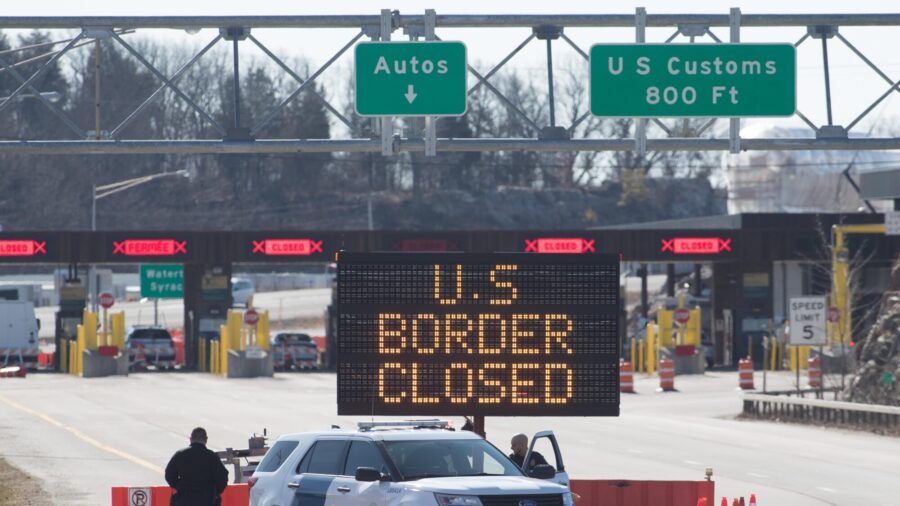OTTAWA—Canada and the United States on Tuesday extended a land-border closure for non-essential travelers, and air passengers arriving in Canada will continue to be tested for COVID-19 ahead of a hotel quarantine period, authorities said.
The land-border restrictions, imposed in March 2020, have been extended to May 21. Now in place for 13 months, they are being renewed month by month. Mexico said late on Monday it was maintaining some of its border curbs too.
The U.S. Department of Homeland Security said it was “engaged in discussions with Canada and Mexico about easing restrictions as health conditions improve.”
The restrictions have hit many border communities and businesses hard. Many U.S. lawmakers have urged loosening the restrictions or setting a road map to resuming normalized travel.
But Canada lags the United States on vaccinations against the coronavirus, and much of the country is now fighting a virulent third wave of the pandemic with school and business closures.
Canada’s mandatory three-day hotel quarantine following testing at airports, which was introduced as a temporary measure to discourage spring break travel, was also extended to May 21, health authorities said.
In February, Canada began testing and requiring international air arrivals to pay for a three-day hotel quarantine, a measure criticized by airlines squeezed by the pandemic. More flight restrictions may be coming.
“We are continuing to look at more (measures),” Prime Minister Justin Trudeau told a news conference. “I have asked our officials to look carefully at, for example, what the UK has done very recently on suspending flights from India.”
Quebec Premier Francois Legault also expressed concern on Tuesday about international flights from India and Brazil—two of the world’s worst hot spots for the coronavirus.
Air travelers to Canada are required to have had a test within three days of departure, and then again on arrival. If the airport text comes back negative, they can finish a 14-day quarantine at home.
However, data obtained by Reuters showed that more than 1,000 passengers, or 1.5% of those who arrived from Feb. 22 to March 25, tested positive for COVID-19, raising doubt about a broad easing of restrictions before the summer travel season.
By Steve Scherer


